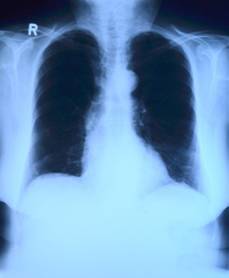What’s Driving the Pulmonary Rehab Shortage?
 For those suffering from chronic obstructive pulmonary disease (COPD), pulmonary rehabilitation can be extremely helpful, especially after a hospital stay. It teaches patients how to exercise, eat right and take medications properly to regain their strength while also providing socialization to people who may be feeling isolated and scared.
For those suffering from chronic obstructive pulmonary disease (COPD), pulmonary rehabilitation can be extremely helpful, especially after a hospital stay. It teaches patients how to exercise, eat right and take medications properly to regain their strength while also providing socialization to people who may be feeling isolated and scared.
Yet few are provided with access to its life-sustaining benefits.
In fact, a University of Massachusetts study of data from almost 200,000 Medicare patients hospitalized for COPD, published in the May 12, 2020 issue of the Journal of the American Medical Association, found that just 1.5% of patients began pulmonary rehab within 90 days of discharge. The researchers also looked at the number of patients in that group who died within one year of discharge to determine what, if any, impact early rehab may have had. The findings were striking. Of the 38,300 patients who died within a year of discharge, nearly 20% did not undergo early rehab compared to just 7.3% who did.
“If this were a medication, it would be a blockbuster,” saidDavid Mannino, director of the Pulmonary Epidemiology Research Laboratory at the University of Kentucky in Lexington. “The tragedy is that it's only available to such a small percentage.”
Why?
Dr. Carolyn Rochester, a pulmonologist at Yale School of Medicine in New Haven, Conn., in an editorial that accompanied the study’s findings in the Journal of the American Medical Association, wrote that doctors aren’t given enough of an incentive to discuss or refer patients to rehab. And when they do make a referral, they rarely follow up because they are unaware of the benefits of pulmonary rehabilitation or they lack access to it. She also noted that many programs are severely underfunded.
Consequently, Rochester believes access and funding is crucial toward pulmonary rehabilitation aiding more COPD sufferers. Because the average age of the patients in the UMass study was 76.9 years, Rochester recommended a randomized clinical trial that included younger patients and those who had lengthy stats in acute hospitals or nursing facilities.
Read the full story here.

